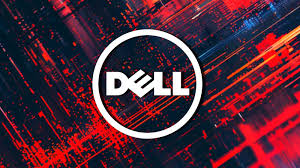
Dell’s John Scimone Emphasizes “Security Must Be Baked In” in Cybersecurity and Product Strategy

 :
| Updated On: 06-Jun-2025 @ 5:34 pm
:
| Updated On: 06-Jun-2025 @ 5:34 pmSHARE
At Dell Technologies World in Las Vegas, John Scimone, Dell’s President and Chief Security Officer, presented the company’s comprehensive cybersecurity strategy focused on the transformative potential of artificial intelligence (AI). In an exclusive interview with Business Today, Scimone outlined three critical “security imperatives for AI” that guide Dell’s approach: responsible use of AI, defending against AI-driven cyber threats, and leveraging AI to enhance security operations.
Scimone emphasized that Dell is fully committed to integrating AI across its operations, recognizing that this innovation brings inherent risks that must be carefully managed. He described AI’s role as threefold: a source of risk, a shield against threats, and a tool to strengthen security defenses.
Addressing the challenges faced by enterprises today, Scimone acknowledged the dual pressure to secure internal AI systems while simultaneously preparing to counter adversarial AI deployed by malicious actors. Among these imperatives, he expressed particular enthusiasm for the opportunity to use AI to improve security capabilities and effectiveness. He views AI as a potential game-changer in the long-standing imbalance between cyber attackers and defenders, noting that the cybersecurity industry has often been on the losing side. AI, he argued, could introduce much-needed volatility into this dynamic, disrupting established patterns and tipping the scales toward defenders.
Scimone identified two major challenges that AI is well-positioned to tackle: a severe shortage of skilled cybersecurity professionals and the increasing complexity of modern technology environments. He highlighted the significant gap in the labor market, where millions of cybersecurity roles remain unfilled due to a lack of qualified candidates. AI’s ability to augment human productivity and simplify complex infrastructures could play a crucial role in bridging this gap and securing large-scale, dynamic systems.
When questioned about whether simpler IT environments might be more vulnerable, Scimone refuted this assumption, asserting that simplicity does not equate to insecurity. On the contrary, environments that are standardized, simplified, and predictable are easier to protect.
On the topic of data, Scimone stressed the importance of data quality, especially in the context of open-source AI and concerns over data scraping. He noted, “Garbage in is going to mean garbage out,” underscoring the need to carefully curate internal datasets to ensure reliable business outcomes. He also discussed the concept of sovereign AI, reflecting the desire of nations to control their own AI infrastructure and data flows. While governments regard AI as a strategic asset, Scimone pointed out the natural tension with the free flow of data, describing data as having an inherent desire to be free. He emphasized the necessity of “purposeful and deliberate” data management policies to balance these forces.
Scimone reiterated Dell’s commitment to ethical and responsible AI use, guided by the company’s own principles.
Shifting focus to consumer technology, Scimone noted growing customer awareness of cybersecurity risks and expectations that security be built-in rather than optional. Dell’s core product strategy is to embed security and resilience into every aspect of its offerings. He highlighted innovative solutions like Dell’s “cyber vault,” which provides air-gapped ransomware protection, and self-healing and image recovery tools designed to quickly restore encrypted devices after an attack. These innovations are a direct result of Dell’s attentive listening to customer feedback, described by Scimone as the company’s “big ears” approach.
In summary, Dell is advancing a holistic cybersecurity strategy centered on responsible AI adoption, strengthening defenses against evolving threats, addressing workforce shortages and complexity, prioritizing data quality and ethical use, and embedding robust security into consumer products to meet rising customer expectations.
Contact Us
House. No. : 163, Second Floor Haridev Rd, near Puberun Path, Hatigaon,Guwahati, Assam 781038.
E-mail : assaminkcontact@gmail.com
Contact : +91 8811887662
Enquiry
×
Reporter Login
×